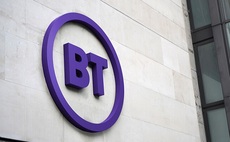Mobile operator says rivals may not be willing to invest in 4G
Mobile operator Everything Everywhere (EE) has hit back at rival operators O2, Vodafone and Three for suggesting that its 4GBritain website is designed solely to advance its own interests. Yeste...
To continue reading this article...
Join Computing
- Unlimited access to real-time news, analysis and opinion from the technology industry
- Receive important and breaking news in our daily newsletter
- Be the first to hear about our events and awards programmes
- Join live member only interviews with IT leaders at the ‘IT Lounge’; your chance to ask your burning tech questions and have them answered
- Access to the Computing Delta hub providing market intelligence and research
- Receive our members-only newsletter with exclusive opinion pieces from senior IT Leaders























